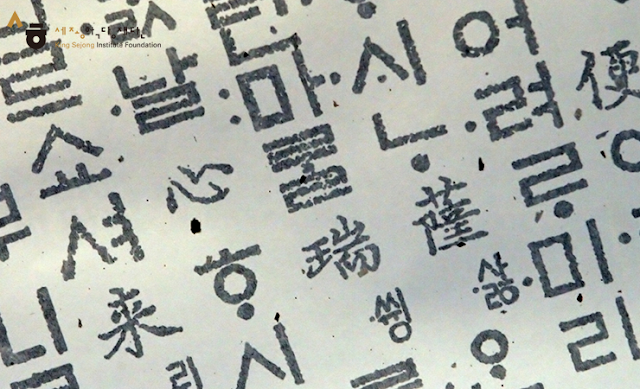TO Danny
성당 모임에 다녀올게.
I am out for catholic church meeting.
자고 있어서 메모 남기고 간다.
I am leaving this memo because you are asleep.
6시쯤에 들어 올 거야.
I will be back around 6.
미안한데 세탁소에 가서 옷 좀 찾아다 줄래?
I am sorry but will you go to the dry cleaners and get the clothes back?
내일 아빠가 꼭 입으셔야 할 갈색 재킷이야. 부탁해!
It is a brown jacket that your father needs to wear tomorrow. Please!
엄마가
From Mom
어머니께,
Dear mother,아까 시카고에서 큰고모가 전화하셨어요.
A little while ago aunt (=father’s elder sister) from Chicago called.할아버지, 할머니 뵈러 다음주 금요일에 오신대요.
She will visit us to meet grandfather and grandmother.
세탁소에서 옷 찾아다 놓았어요.
I brought the jacket back from the dry cleaners.
저는 조이랑 봉사활동 할 곳을 알아보러 나가요.
I am going out with Joy to look for places to volunteer.
엄마가 휴대전화를 놓고 가셔서, 메모 남깁니다.
I am writing this memo because you left your cell phone at home.
대니 올림
Written by Danny
어휘 학습
1. 성당: 교회, 성당, 절, 기독교, 천주교, 불교
2. 남기다 : ‘남다’에 사동접사 ‘기’가 결합한 형태
예) 다 쓰지 않아 나머지가 있다 : 음식을 남기다
다른 사람과 떠나지 않고 그대로 있다 : 엄마는 집에 아이를 남기고 떠났다.
잊혀지지 않고 뒤에까지 전해지다 : 세종대왕은 많은 업적을 남겼다.
3. 세탁소: 장소를 나타내는 접미사 ‘소’가 결합한 명사
ex) 주소, 세탁소, 정미소, 강습소, 교도소
4. 다양한 색깔 : 빨간색, 파란색, 노란색, 초록색, 검은색, 하얀색, 회색, 보라색, 주황색, 분홍색, 감색
5. 아까 =조금 전에
6. 휴대전화 =핸드폰, 휴대폰
교사 길라잡이
1. –다(가): 어미 ‘-다가’는 동사 어간에 결합하여 어떤 동작이나 상태 따위가 중단되고 다른 동작이나 상태로 바뀜을 나타내거나 어떤 일을 하는 과정이 다른 일이 이루어지는 원인이나 근거 따위가 됨을 나타내는 연결 어미로 쓰인다. 구어체에서는 ‘-다’ 형태로 ‘가’를 생략해서 쓰기도 한다.
예) 학교에 가다가 친구를 만났다. / 그 옷을 엄마에게 가져다가 주세요.
Notes
대니에게: 대니(Danny)+-에게 dative marker
성당 모임에: 성당 모임(catholic church meeting)+-에(marker(for))
다녀올게: 다녀오(다)( to be out)+-ㄹ게(modal aux.(will))
자고 있어서: 자(다)(to be asleep)+-고 있(다)(be+-ing)+-어서(connective; because)
메모(memo)
남기고 간다: 남기(다)(to leave)+-고(connective; and then) +가(다)+-ㄴ다(ending(declarative))
6시쯤에: 6시(six)+쯤(around)+-에(marker(at))
들어 올 거야: 들어 오(다)(to be back)+-ㄹ 거(다)(modal aux. (will))+-야(ending(pain style: declarative))
미안한데: 미안하(다)(to be sorry)+-ㄴ데(connective; to express background)
세탁소에: 세탁소(the dry cleaners)+-에(marker(to))
가서: 가(다)(to go)+-서(connective; and then)
옷(clothes)
좀(please)
찾아다 줄래?: 찾(다)( get back)+-아다 주(다)(modal aux.(to do something for someone))+-ㄹ래(ending (for asking))?
내일(tomorrow)
아빠가: 아빠(your father)+-가(subjective marker)
입으셔야 할: 입(다)+-으시-(pre-ending(honorific))+-어야 하(다)(modal aux.(must))+-ㄹ (ending (relative clause; noun modifying))
갈색 재킷이야: 갈색 재킷(a brown jacket)+이(다)(ending(to be))+-야(ending(pain style:declarative))
부탁해!: 부탁하(다)+-해(ending(pain style: declarative))
엄마가: 엄마(Mom)+-가(marker(from))
어머니께: 어머니(mother)+-께(marker(to; honorific))
아까(A little while ago)
시카고에서: 시카고(Chicago)+-에서(marker(from))
큰고모가: 큰고모(father’s elder sister)+-가(subjective marker)
전화 하셨어요: 전화하(다)(to call)+-시-(pre-ending(honorific))+-었-(pre-ending(past tense))
+-어요(ending(polite))
할아버지, 할머니(grandfather and grandmother)
뵈러: 뵙(다)(to meet)+-러(connective; for)
다음주 금요일에: 다음주 금요일(next Friday)+-에(marker(on))
오신대요: 오(다)(to visit)+-시-(pre-ending(honorific))+-ㄴ대요(quotative(declarative: contracted form))
세탁소에서: 세탁소(the dry cleaners)+-에서(marker(from))
옷(the jacket)
찾아다 놓았어요: 찾(다)(to bring back)+-아다 놓(다)(modal aux.(to be in a state))+-았-(pre-ending(past tense))+ -어요(ending(polite))
저는: 저(I)+-는(marker(exclusion))
조이랑: 조이(Joy)+-랑(marker(with))
봉사활동(volunteer)
할: 하(다)(to do)+-ㄹ(ending (relative clause; noun modifying))
곳을: 곳(places)+-을(objective marker)
알아보러: 알아보(다)(to look for)+-러(connective; purpose)
나가요: 나가(다)(to go out)+-요(ending(polite))
엄마가: 엄마(you)+-가(subjective marker)
휴대전화를: 휴대전화(cell phone)+-를(objective marker)
놓고 가셔서: 놓(다)(to leave)+-고(connective; and then)+가(다)+-시-(pre-ending(honorific))
+-어서(connective; because)
메모 남깁니다: 메모 남기(다)(to write memo)+-ㅂ니다(ending(declarative))
대니 올림(Danny)

